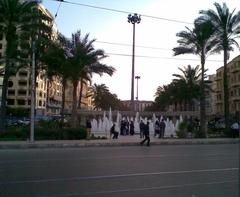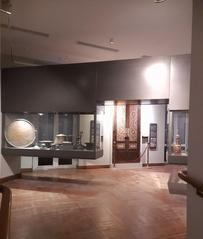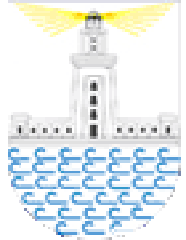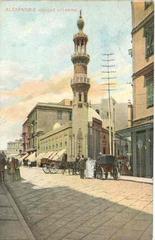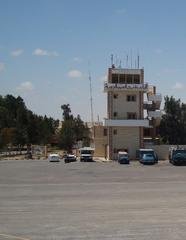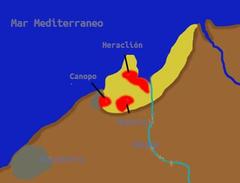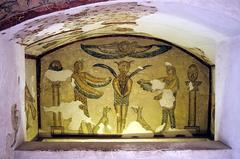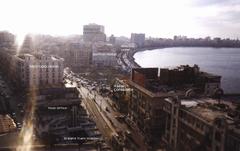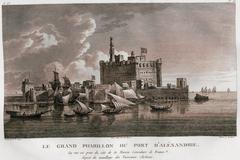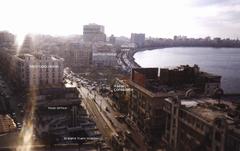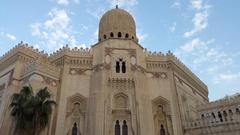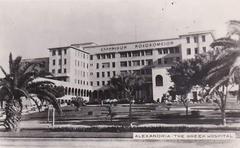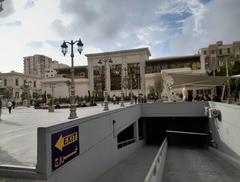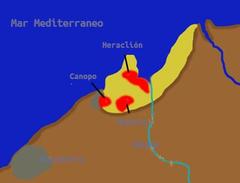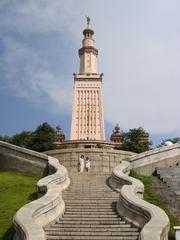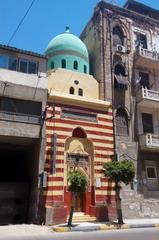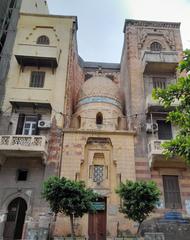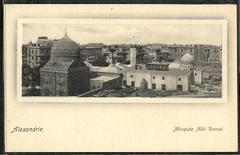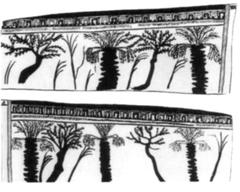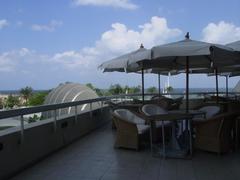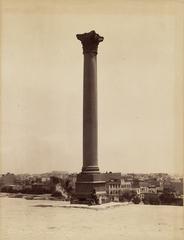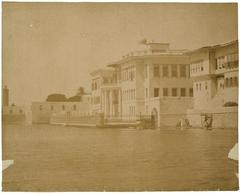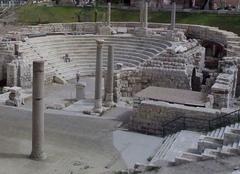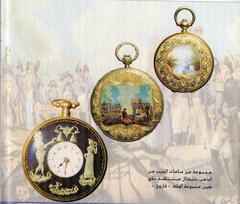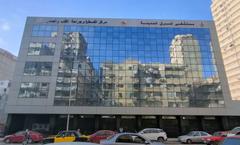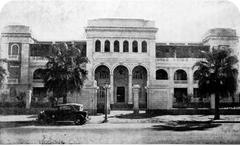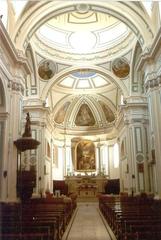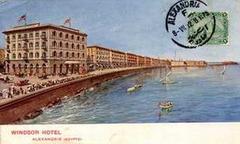Egyptian Air Defense College Alexandria: Visiting Hours, Tickets, and Comprehensive Guide
Date: 14/06/2025
Introduction
The Egyptian Air Defense College in Alexandria stands as a cornerstone of Egypt’s military education and air defense strategy. Founded in the post-World War II era as part of the nation’s modernization efforts, the college has grown into a premier institution responsible for training officers who defend Egypt’s airspace with advanced technology and rigorous academic programs. Situated within Alexandria—a city renowned for its historical and cultural legacy—the college represents a fusion of military tradition, academic excellence, and national pride.
While the college operates primarily as a secure military facility with restricted public access, it occasionally hosts special events, exhibitions, and official tours. These rare opportunities allow select visitors to experience its impressive architecture, advanced simulation centers, and museum exhibits that highlight Egypt’s achievements in air defense technology. The college also serves as a hub for international conferences, underscoring its pivotal role in military technology and cybersecurity.
Due to its sensitive nature, access to the Egyptian Air Defense College is highly regulated. Visitors must secure prior authorization, present valid identification, and adhere to strict security protocols. Use of photography and electronic devices is limited, and visitors are expected to dress modestly and conduct themselves respectfully in line with military and cultural norms. For those unable to gain entry, Alexandria offers a wealth of accessible military heritage sites—such as the Citadel of Qaitbay, Alexandria National Museum, and El Alamein War Museum—that complement the region’s rich defense history.
This guide provides detailed information on the Egyptian Air Defense College’s history, facilities, accessibility, visitor protocols, and nearby attractions. It also offers practical advice for military heritage tourism in Alexandria. For official updates and further details, consult the Egyptian Ministry of Defense (mod.gov.eg) and reputable travel portals (egiptoexclusivo.com).
Table of Contents
- Discovering the Egyptian Air Defense College
- Campus Overview
- Visiting the College: Accessibility, Security Measures, and Alternatives
- Military Heritage Tourism in Alexandria
- Summary and Key Visitor Information
- References and Further Reading
Discovering the Egyptian Air Defense College
Overview
Founded during Egypt’s post-WWII modernization, the Egyptian Air Defense College in Alexandria has played a pivotal role in shaping the country’s air defense capabilities. The institution combines tradition with innovation, providing state-of-the-art training for future officers.
Visiting Hours and Entry Information
- Public Access: The college is generally not open to the public. Occasionally, it allows entry for special exhibitions, events, or official tours. These events are pre-announced and require prior registration and security clearance.
- Typical Hours: When open, visits are usually permitted between 9:00 AM and 4:00 PM, Sunday to Thursday.
- Tickets: Entry is typically free during open days or events, though some guided tours may require a nominal fee.
Guided Tours and Visitor Experience
On rare open days or during international conferences, guided tours offer insights into the college’s:
- History and legacy in Egyptian air defense
- Training programs and technological advancements
- Museum collections featuring radar and missile systems, cadet research, and historical artifacts
Accessibility and Location
- Location: Centrally located in Alexandria, accessible by taxi and public transportation from the city center.
- Access Requirements: All visitors must have valid identification and, in most cases, prior written authorization.
Nearby Attractions
If you’re unable to visit the college directly, Alexandria offers alternative attractions with military significance:
- Citadel of Qaitbay: A Mamluk fortress on the Mediterranean coast
- Alexandria National Museum: Showcasing the city’s military and cultural history
- El Alamein War Museum: Commemorating pivotal WWII battles
- Bibliotheca Alexandrina: Modern library with military and maritime exhibits
Cultural Significance and Visitor Tips
- Dress Code: Modest clothing is required—long trousers or skirts, closed shoes, and covered shoulders.
- Behavior: Respect military protocols and local customs. Political discussions and photography in sensitive areas are discouraged.
- Permissions: Always obtain official approval before visiting or photographing the site.
Visual Highlights
The college features:
- Impressive military architecture and landscaped grounds
- Exhibitions of cadet projects and defense technology
- Occasional displays of advanced radar, missile systems, and simulation centers
Frequently Asked Questions (FAQ)
Q: Can the public visit the Egyptian Air Defense College?
A: Only during rare open days, official tours, or special events with prior permission.
Q: Are guided tours available?
A: Yes, but only during pre-arranged events or exhibitions. Inquire in advance.
Q: What security procedures should visitors expect?
A: Visitors must present valid ID, pass security screening, and comply with all site regulations.
Q: Is photography allowed?
A: Only in designated areas and with explicit permission.
Q: How do I get to the college?
A: Accessible by taxi or public transit from central Alexandria.
Campus Overview
Academic and Training Facilities
The college boasts:
- Lecture Halls and Classrooms: Equipped with modern audio-visual systems for interactive learning (Egyptian Gazette)
- Labs and Simulation Centers: Hands-on training in radar, missile guidance, and electronic warfare
- Training Grounds: Outdoor facilities for practical missile, radar, and artillery exercises
- Physical Fitness Facilities: Gyms, tracks, pools, and sports fields
- Library: Extensive military, engineering, and air defense collections, with collaborations such as the Bibliotheca Alexandrina
Organizational Structure
- Affiliation: Operates as a specialized branch of the Egyptian Military Academy
- Academic Departments: Include Air Defense Systems, Military Sciences, Engineering, and Physical Education
- Cadet Life: Regimental organization fosters discipline and leadership
- International Collaboration: Joint exercises and partnerships with allied academies
Specialized Training and Modernization
- Curricula are regularly updated to include cyber defense, unmanned aerial systems, and space surveillance.
- Investments in advanced simulators and trainers ensure cadet proficiency with the latest technologies.
Support Services and Cadet Welfare
- Medical and Psychological Support: On-campus facilities
- Living Quarters: Secure dorms and nutritious dining
- Religious and Cultural Spaces: Support for cadet well-being
Security and Visitor Access
- Strict Security: Entry limited to authorized personnel and approved visitors.
- Visitor Guidelines: Modest dress, proper conduct, and compliance with all regulations are mandatory.
- Photography and Devices: Restricted unless specifically approved.
Visiting the College: Accessibility, Security, and Alternatives
Accessibility and Entry Restrictions
- Location: In a secure military zone within Alexandria, not served directly by public transportation.
- Public Access: Not permitted except during rare, pre-announced events.
- Special Needs: Facilities for visitors with disabilities are limited; arrangements must be made in advance if access is granted.
Security Policies
- Perimeter Security: Monitored by military police, with physical barriers and surveillance.
- Internal Security: Visitors are escorted; sensitive areas are off-limits.
- Emergency Procedures: Comprehensive protocols for fire, medical, or security incidents.
- Regulation Compliance: Adheres to national and international military site protection laws (mod.gov.eg).
Visitor Considerations and Tips
- Permission: Submit formal requests to the Ministry of Defense, including visit details and participant information.
- Dress and Behavior: Conservative attire and respectful conduct are required.
- Language: Arabic is primary; English is spoken by some staff, but an interpreter is recommended.
- Health and Safety: Medical facilities are available; bring personal medications and notify hosts if you have concerns (egypttoursportal.com).
- Prohibited Items: Weapons, drones, hazardous materials, and unapproved electronics are not allowed.
- Cultural Sensitivity: Avoid political topics and respect all military customs.
- Emergency Contacts: Have host and embassy/consulate numbers accessible.
Alternatives: Public Military Sites in Alexandria
For those unable to visit the college, these sites offer military history experiences:
- El Alamein War Museum: WWII history and memorials (egiptoexclusivo.com)
- Fort Qaitbey: Historic fortress with military significance
Military Heritage Tourism in Alexandria
Top Sites: Visiting Hours, Tickets, and Highlights
| Site Name | Type | Distance from College | Opening Hours | Entry Fee (Tourists) | Key Features |
|---|---|---|---|---|---|
| Citadel of Qaitbay | Fortress | ~10 km | 08:00–17:00 | 150 EGP | Mamluk-era fort, lighthouse ruins, panoramic views |
| Alexandria National Museum | Museum | ~8 km | 09:00–17:00 | 180 EGP | Artifacts, military displays, restored villa |
| Catacombs of Kom el Shoqafa | Archaeological Site | ~12 km | 09:00–16:00 | Varies | Subterranean tombs, wartime refuge |
| Pompey’s Pillar/Serapeum | Monument/Temple | ~9 km | 09:00–17:00 | Included/Varies | Roman-era military architecture |
| Montaza Palace & Gardens | Palace/Gardens | ~11 km | 08:00–00:00 | 25 EGP | Royal retreat, diplomatic history |
| Bibliotheca Alexandrina | Library/Museum | ~7 km | 10:00–19:00 | Varies | Exhibits on military/maritime history |
Travel Tips:
- Purchase tickets at entrances or through official channels.
- Visit early on weekdays to avoid crowds.
- Confirm accessibility and photography policies ahead of time.
Cultural Insights and Practical Advice
- Respect Local Customs: Modest dress, polite behavior, and sensitivity to military and political topics are essential.
- Transport: Taxis and ride-hailing apps are widely available.
- Language: English is spoken at most tourist sites, but knowing a few Arabic phrases is helpful.
- Cuisine: Enjoy Alexandria’s seafood and street food along the Corniche.
- Safety: The city is generally safe, but remain cautious when traveling at night or in isolated locations.
Summary of Key Visitor Information
The Egyptian Air Defense College is a vital institution for Egypt’s national defense and military education. While public access is extremely limited, understanding its role and protocols prepares visitors for rare official events or educational tours. Alexandria’s accessible military heritage sites—such as the Citadel of Qaitbay, Alexandria National Museum, and Bibliotheca Alexandrina—offer enriching alternatives for exploring Egypt’s defense history. Plan ahead, observe local customs, and consult official resources for the most current information and guidance.
References and Further Reading
- Visiting the Egyptian Air Defense College: History, Tours, and Visitor Information, 2025, Egyptian Ministry of Defense (mod.gov.eg)
- Egyptian Air Defense College Alexandria: Campus, Facilities, Visitor Information, and FAQs, 2025, Egyptian Gazette (Egyptian Gazette)
- Visiting the Egyptian Air Defense College: Accessibility, Security, and Alternative Military Sites in Alexandria, 2025, Egipto Exclusivo (egiptoexclusivo.com)
- Military Heritage Tourism in Alexandria: Visiting Hours, Tickets, and Top Historical Sites Near Egyptian Air Defense College, 2025, Egypt Tours Portal (egypttoursportal.com)
For more information, updates, and travel guidance, download the Audiala app and follow us on social media. Explore related articles on Alexandria’s military, cultural, and historical landmarks for a fulfilling visit to this remarkable city.

